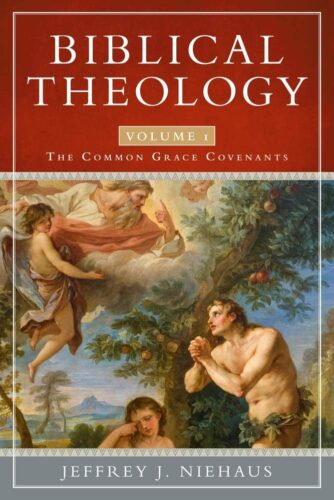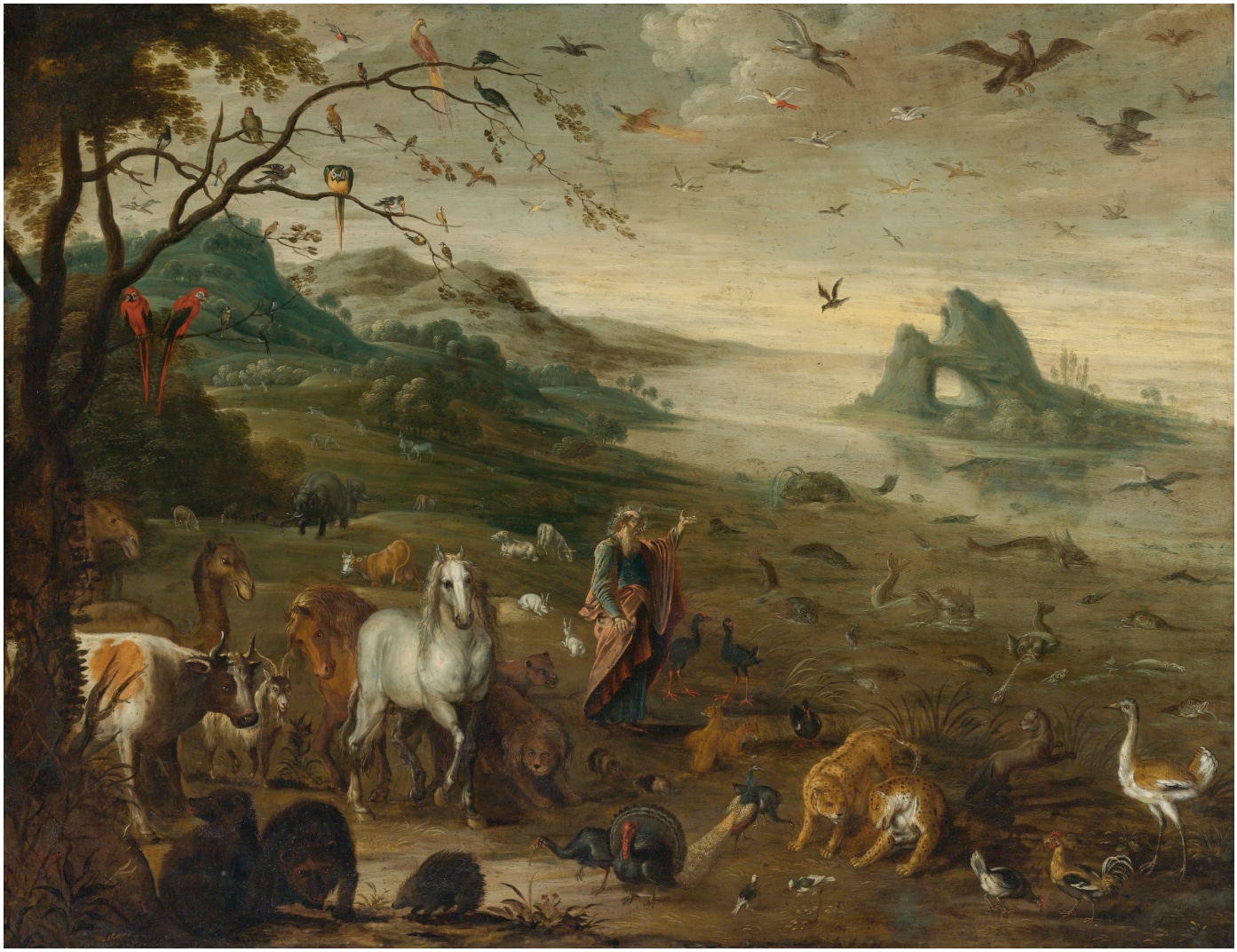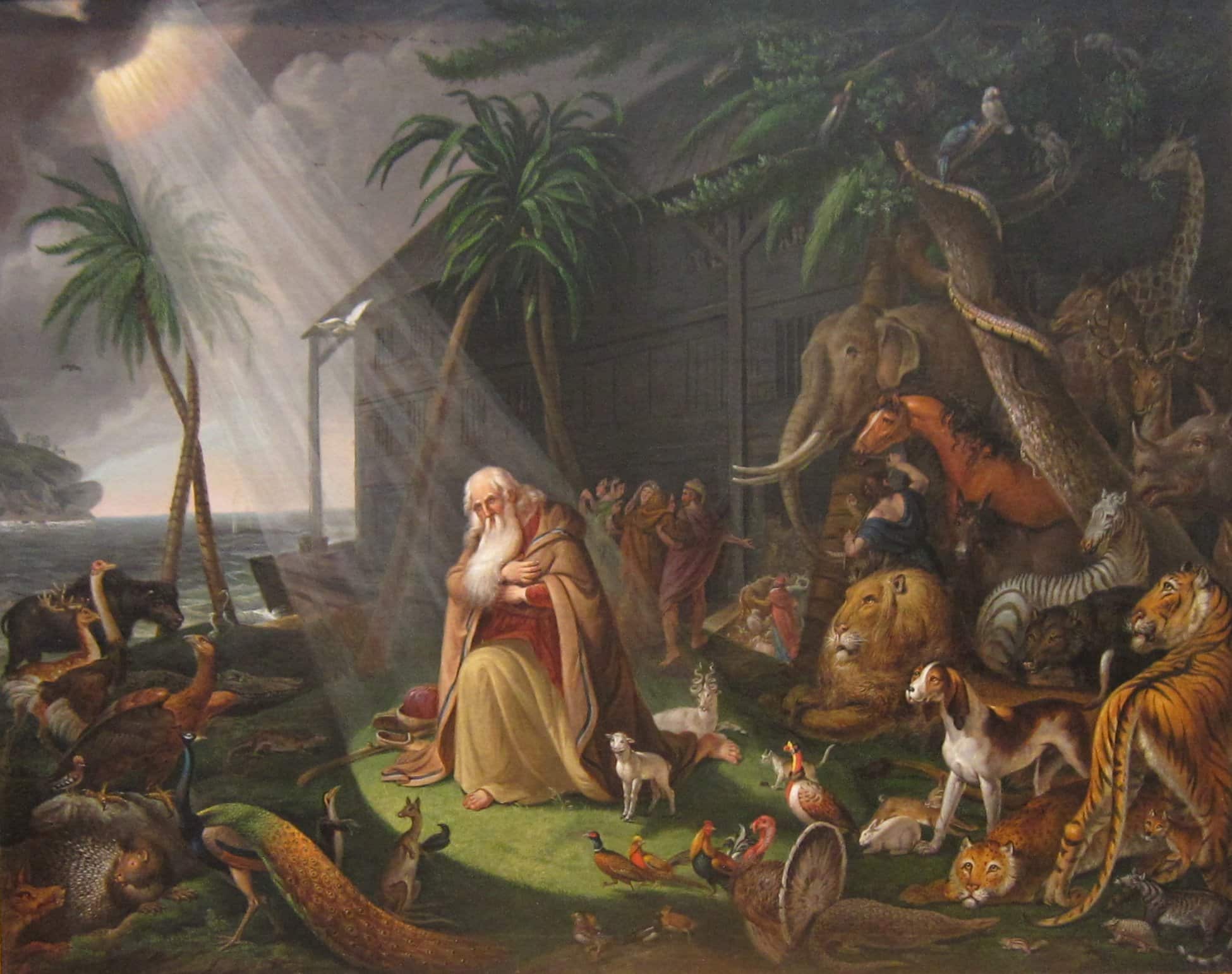A Look at Covenants in the Bible: the Adamic and Noahic
Author: Jeffrey J. Niehaus
For the last several months, I’ve been trying to mature as a Christian. I started with a few of the more beginner level books, such as Created Equal: How the Bible Broke with Ancient Political Thought and God Is a Man of War I enjoyed them, and they made me want more, something a little heavier, something to get my theological teeth into and challenge myself. Enter Jeffrey J. Niehaus’ three volume deep-dive on covenants in the Bible.
I have always known that the Bible is covenantal, but I, like many modern readers, thought of a covenant more as a synonym for a promise. Niehaus quickly explains in Biblical Theology Volume 1: The Common Grace Covenants that covenant is more than a casual term, that it is a binding agreement – a legal stipulation, if you will – with both benefits and curses woven into it. It’s not just a promise. It’s bigger than that, more substantial. There are different kinds of covenants, including both those for the “general world” (i.e., your common grace covenants) and the Christian world (your special grace covenants). As Niehaus says when discussing the first covenant, the Adamic covenant:
There is more dramatic evidence for the covenant nature of the creation account. Knowledge from the ancient Near East has now made it possible to understand that the account is cast in the form of a second millennium suzerain – vassal treaty. It articulates major elements of a covenant from that period including a title, historical prologue, stipulations, witnesses, blessings, and curses . . . the covenant nature of the creation account enables us to understand at the outset some essential matters:
-
God was from the beginning a great king (i.e., a suzerain)
-
He created a visible kingdom (the world)
-
He installed royalty (the man and woman) as vassal king and queen over that kingdom (7-8).
This is a big concept, and as you can see, more powerful than the modern idea of a promise. It also establishes mankind in a surprising position: those who rule the physical world on God’s behalf.
Of course, Neihaus gets into the nitty-gritty of just what is involved and what this means, talking us through the first several chapters in the Bible to explain the creation covenant and then the second grace covenant, which he argues that all of us are still under: the Noahic covenant.
Once our first parents had sinned, God established the covenantal foundation of that program in two ways. First, He graciously continued the Adamic or Creation convent so that humans could continue to exist, procreate, and fulfill the cultural mandate even though they were in a fallen state. Second, when human sin had reached such proportions that God’s justice (and merciful provision for a possible human future) compelled him to bring judgement in the form of the Flood, God made a covenant with and through Noah that renewed the Adamic covenant. From that point onward in human history, the Adamic and Noahic covenants have constituted one legal package under which all humans have lived and will continue to live until the eschaton. So, for example, humans continue to be fruitful and multiply, to exercise rule over the earth and the creatures, and to die (32).
The quotes above hit the highlights of the book and set the stage for what Neihaus is going to be deep diving on in this volume. The rest of the book is set to prove his points, to look at where faith comes into play in these first two covenants, to talk about the Holy Spirt and how and where He acts throughout the Old Testament, to discuss works and faith and where each falls in these initial covenants, and to bring the message home that all humanity is under a covenant, either the social grace covenant ushered in by Christ or the Noahic covenant described above.
Neihaus also has some fascinating asides, called excurses. Some of these excurses are intricately tied into Neihuas’ explanations of the convents whereas others (such as the discussion on how and why Cain built a city) are merely fascinating asides that bring the Biblical world alive.
As with all these types of books, Neihuas is careful to explain the how and why of the surrounding culture and set the stage for volume II, the special grace covenants.
As I continued to read this book alongside my personal Bible reading, devotions, and sojourns to church, I have started to notice conventual language and its ramifications in all the reading. Neihuas’ perspective has helped me look at scripture and its interconnectedness in a different way as well as the inner workings of the Old Testament which were previously murky, at best, to me.
The only negative aspect of this book is the writing style. It gets better as the author’s passion takes over and moves us past the pedantry, but this is the type of book that must be read in silence, with zero distractions, and with intensive re-reading because of the unnecessarily complex language, gigantic academic sentences, and desire to use every $20 word out there. It’s worth struggling through in the beginning, but it is a struggle, even for readers who are devoted to the subject. It’s saved by the quality and thoroughness of the content, but I am rather hoping that volume II will pick up more smoothly, setting aside the academic showiness to get straight to the content. Once volume I did that, the applications to our faith, Bible reading, and daily life became clear (as well as just plain interesting). But beware, it will take a bit of time to get used to the initial heavy-handed style.
I’m excited to move on to volume II and thrilled that what I have learned continues to show up in my own study and help me understand the relationship between God and man, especially in the more difficult early Bible chapters where the focus is mostly on history.
– Frances Carden
Follow my reviews on Twitter at: https://twitter.com/xombie_mistress
Follow my reviews on Facebook at: https://www.facebook.com/FrancesReviews
- Book Vs Movie: The Shining - April 6, 2020
- Thankful For Great Cozy Mysteries - December 13, 2019
- Cozy Mysteries for a Perfect Fall - October 20, 2019





